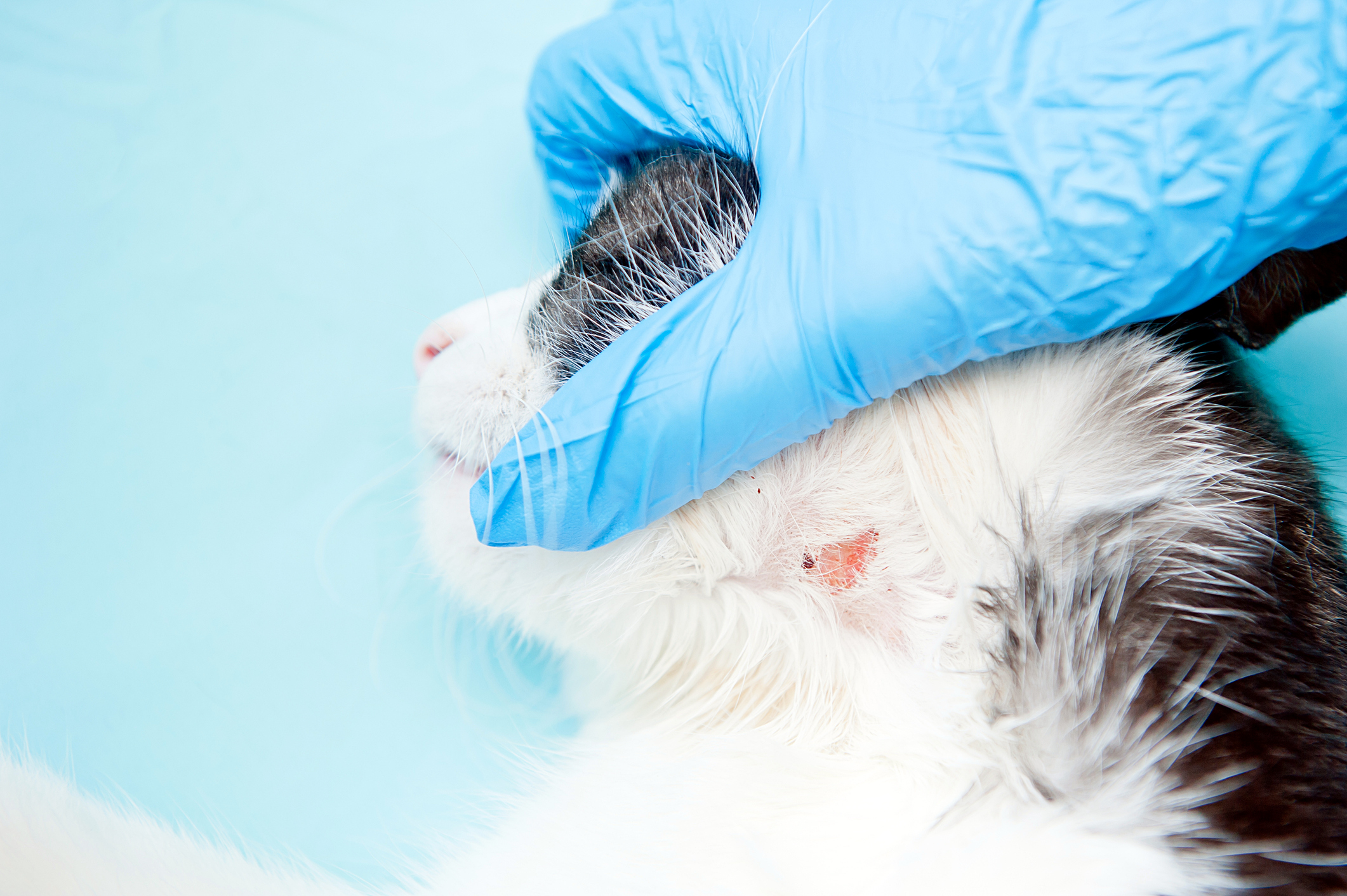
5 Reasons Your Cat's Skin is Dry and Flaky
Most cats are furry and soft—it’s why we love to snuggle up with them and pet them! Not only is a soft coat nice to touch, but it’s also an indicator of good health. Hydrated skin and shiny fur let us know that our kitties are getting all the nutrients they need. On the flip side, dry, flaky skin and a dull coat might be signs that something is wrong.
If your cat suddenly develops dry, itchy skin, dull and brittle hair and a bout of kitty dandruff, a few potential problems might be occurring.
1. Weather
One of the most common causes of dry skin in cats is the air quality outside or within your home. Dry skin and flakiness are most often seen in the winter—just the same as humans! The reason is the lack of moisture in the air. Little humidity inside and hot, dry air blowing from your furnace inside can zap your cat’s skin of moisture. Because cats can’t apply lotion like we can, you’ll want to take an inside-out approach to your cat’s dry winter skin. Consider purchasing a humidifier to increase the moisture in your home and add a fish oil supplement to your feline’s food to improve skin moisture levels.
2. Nutritional deficiencies
Another extremely common cause of dry skin and brittle hair in cats is related to nutrition. The body needs a full suite of macronutrients, vitamins and minerals in order to nourish every area, including the skin. A cat’s skin and coat are usually the first to feel the effects of reduced nutritional intake because the body will direct nutrients where they’re needed most—to the vital organs.
Speak with your vet about changing your cat’s food to one with higher nutrient content or adding a nutritional supplement like omega-3 fatty acids. If the food isn’t the problem, your cat may have a health problem preventing them from absorbing nutrients properly. It’s also extremely important that your cat is drinking enough water. A dehydrated kitty can develop dry, flaky skin (among other health problems), so use a water fountain or feed more wet food if your cat doesn’t like to drink throughout the day.
3. Allergies
Allergies can also cause your kitty to suffer from dry and flaky skin. Some food or environmental allergies cause reactions of the skin. If allergies are to blame, the skin might appear red and inflamed with white flakes, and your cat will likely scratch or groom a lot to relieve their itchiness. If your cat has a known allergy, try to limit their exposure to the allergen and give them allergy relief supplements or medications to soothe their skin. If the reactions are new, you may need to think back on anything new your cat has encountered recently that might have triggered an allergic response, such as household cleaners or a different type of litter, and avoid using it in the future.
4. Too many baths
Most cats are perfectly capable of keeping themselves clean and don’t need regular baths. Not only can bathing your cat too frequently subject you and them to stress and frustration (and a bathroom covered in water!), but it can also dry out your cat’s skin and coat. Many pet shampoos strip cats of their natural oils, meaning they aren’t able to thoroughly coat the skin and hair to keep them moisturized. Avoid bathing your cat unless it’s absolutely necessary. Instead, give your kitty a nice brushing once a day to help distribute oils evenly across their skin and remove shedding hair.
5. Fungal infections
Skin infections caused by fungi can lead to dry, scaly patches on your cat’s skin. These patches often cause flakiness similar to dandruff. One of the most common fungal infections in cats is ringworm. Ringworm infections typically cause small, circular patches of red and flaky skin. Hair loss is typically evident in these areas, as well. Ringworm is contagious to humans and other pets, so you’ll want to avoid handling your pet and seek veterinary care right away for the proper treatment.

Dry, flaking skin and a dull coat in cats are not normal. Fortunately, they’re some of the easiest symptoms of illness to spot and are generally rectified quickly. If simple changes like the addition of omega-3 fatty acids, fewer baths or humidifiers don’t soothe your cat’s skin issues, book an appointment with your vet. They should be able to identify the problem with a few tests and put your cat back on the path to healthy skin!


